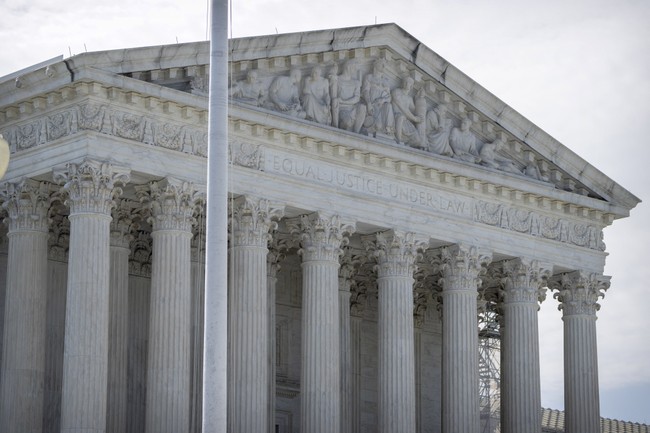This year, conservative politics has seen the emergence of a new force. Republican base voters, frustrated with the uniparty and lack of real choices, have effectively established a new party in 12 states without facing the usual ballot access challenges. State Freedom Caucuses have distinguished themselves in GOP primaries and legislative sessions, making it harder for fake conservatives to mislead voters. Despite facing fierce opposition from both sides of the uniparty, these caucuses have not only survived their first full primary cycle — they have thrived.
For years, few voters in deep red states realized that their Republican politicians were betraying them to liberal special interests while failing to leverage the supermajorities granted to them. GOP governors and legislative leaders thrived on anti-Democrat rhetoric and a performative rural aesthetic, all while backstabbing their constituents on critical issues. This changed when a group of unified lawmakers, backed by a robust network of policy experts, communication strategists, and campaign professionals, began exposing these frauds through uncomfortable legislative votes. Welcome to the era of the State Freedom Caucus Network.
Freedom Caucuses have cracked the code in state capitals that conservatives have struggled to decipher in Washington for years.
For the past two years, state Freedom Caucuses have aggressively challenged the party establishment. They forced votes on popular conservative bills that had been ignored, filibustered their own party’s priorities, blocked budget votes, and exposed the liberal personnel and policies of their governors. In response, party leaders attacked the Freedom Caucuses through local media, expelled members in states like South Carolina and Georgia, and even stripped some of their statehouse parking slots in Missouri. Many of these caucus members, including newcomers, faced tough renomination battles in primaries this past spring and summer against opponents with superior funding and organization.
Given the party establishment’s resources and the apathetic and often clueless conservative media, most would have bet against the Freedom Caucuses heading into the 2024 primaries. These caucuses, mostly located in rural states where legislative races are usually inexpensive, were up against enormous sums of money aimed at defeating them. However, now that the primaries are over, the results heading into next year’s legislative sessions are both surprising and transformative.
Despite being outspent in nearly every race and posing a greater threat to the GOP establishment than to Democrats, 101 of the 106 public members of various state Freedom Caucuses who ran for re-election will be returning next year. Only a few other unofficial members were defeated. The Freedom Caucuses not only held their ground against intense opposition but also gained 50 new members and several potential allies and defeated 29 liberal incumbents, including veteran committee chairs and floor leaders. Many red-state legislatures will shift noticeably more conservative next year, with some experiencing significant changes.
Wyoming State Rep. John Bear (R) stands at the podium alongside other state Freedom Caucus chairs and vice chairs in Dallas on Sept. 7.Photo by Daniel Horowitz/Blaze News
In Wyoming, conservatives expanded their presence from 26 to 37 seats, securing a majority in the 62-seat legislature. They ousted eight incumbents, collectively holding nearly 100 years of experience. Gov. Mark Gordon (R), his wife, and their allies spent almost $400,000 against nearly every sitting Freedom Caucus member — an extraordinary sum for local statehouse races — but managed to unseat only three conservatives. Progressive former Speaker Albert Sommers (R) lost his state Senate bid to a Freedom Caucus-aligned conservative. The Freedom Caucus is now positioned to elect Rep. Chip Neiman, one of their own and the current floor leader, as the nation’s first Freedom Caucus speaker.
South Dakota is another state where the Freedom Caucus could soon elect a speaker in the lower house. The June 10 primary marked a turning point for local ranchers angered by those who supported a Green New Deal-inspired carbon capture pipeline that threatened their land rights. Voters ousted 14 liberal incumbents from both chambers, including the entire House whip team and the Senate appropriations committee chairman. Of the 33 Freedom Caucus-aligned candidates running for the legislature, 24 won their races, and none of the Freedom Caucus incumbents seeking re-election were defeated, despite facing well-funded opponents.
In South Carolina, a fierce battle between the two factions followed the Freedom Caucus’ expulsion from the GOP caucus in the House. Nearly every Freedom Caucus member faced a well-funded primary challenger. The Palmetto Truth Project spent several million dollars against 11 Freedom Caucus members — an unprecedented sum for such small races. Yet none of the challengers came within 10 points of defeating a caucus member. While the Freedom Caucus didn’t lose a single member, it managed to defeat the sitting assistant majority leader and the chairman of the labor and commerce committee.
The contrast between the state legislative and congressional primaries could not be starker. Nationally, conservatives failed to unseat a single wayward incumbent and even lost their Freedom Caucus chairman when Rep. Bob Good narrowly lost in Virginia. Trump endorsements played a role, but the influence of money and incumbency is always greater in congressional races than in state legislative contests. At the state level, however, the Freedom Caucuses distinguished themselves clearly, allowing voters to understand what was at stake and identify who belonged to which faction.
For years, liberal Republican governors and their legislative allies manipulated annual sessions to expand permanent bureaucracies while maintaining a superficial appearance of conservative governance. By objecting, forcing votes on bills and amendments, and publicly exposing GOP betrayal on key issues, the Freedom Caucuses have created a successful environment for primaries. They have cracked the code in state capitals that conservatives have struggled to decipher in Washington for years.
Earlier this month, the State Freedom Caucus Network, the umbrella organization helping to staff and unify the various state caucuses, held an awards ceremony in Dallas to showcase its triumphs this year and strategize for the year to come. South Carolina was recognized as the most effective Freedom Caucus, given its unity in the face of adversity.
It’s that unity of purpose and outcomes-based focus that will carry the day for conservatives in potentially half the country, even in the worst-case scenario on November 5.
Read the full article here





![Biden’s Push Against Women’s Sports and Biology Blocked by Court [WATCH] Biden’s Push Against Women’s Sports and Biology Blocked by Court [WATCH]](https://www.lifezette.com/wp-content/uploads/2025/01/2025.01.10-02.15-lifezette-67812b6a6a461.jpg)



![Trump Pledges Clarity on Mysterious Drones: ‘They Know’ [WATCH] Trump Pledges Clarity on Mysterious Drones: ‘They Know’ [WATCH]](https://www.lifezette.com/wp-content/uploads/2024/12/2024.12.20-02.29-lifezette-67657f31befac.jpg)